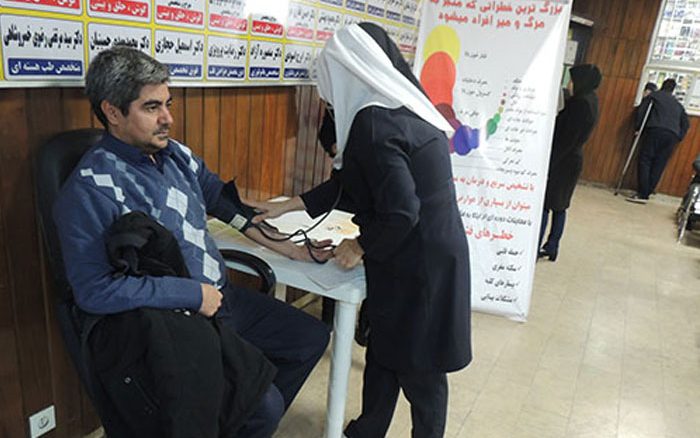Blood pressure is the pressure that blood enters the wall of measles. Blood pressure is one of the most common chronic arterial disease in modern societies, and is referred to as an assassin.
High blood pressure risk
heart attack
stroke
Kidney disease
Vision problems
You are likely to have high blood pressure if:
You are overweight
You are a smoker
You are low mobility
Your family has a history of hypertension
Symptoms of high blood pressure
High blood pressure can be asymptomatic for many years, or it may be associated with symptoms such as back pain, especially in the morning, when it wakes up, dizziness, and palpitations.
Factors that affect high blood pressure
In most cases, the cause of high blood pressure is unknown, but the following factors are effective in exacerbating the disease.
Diabetes – nervous pressure – increased blood lipids – smoking – lack of exercise and exercise – high salt intake – contraceptive pills – consumption of corticosteroids
How to prevent high blood pressure?
A) Diet compliance
Reduce the amount of fat you use: It is better to use olive oil, soy and canola instead of butter and solid oil. In general, less fuel should be used in cooking food.
Remove meat and chicken fat before cooking.
Egg yolk can be limited to 2 times a week.
Avoid eating hearts, rubbish, chopsticks and brains.
Use a boiled, steamed or grilled boil instead of frying food.
Eat at least 2 meals a day (avoid smoked, canned fish or tuna fish for salt reasons)
In meals, eat enough beans, such as lentils, peas, vegetables.
Consume enough fiber foods, especially fruits and vegetables.
Decrease the amount of salt in your diet (5 grams per day = 1 teaspoon of smooth head)
Avoid excessive amounts of starchy (sweets) that lead to overweight.
Note that high fiber intake can also lead to lower levels of lipids.
Note that reducing salt intake for patients with high blood pressure and heart disease, or patients with kidney problems.
B) Exercise
Performing exercise lowers blood pressure by 5 to 15 mmHg. Physical activity and exercise should be carried out continuously (three times a week, every half an hour walking)
If exercise stops, blood pressure will return to the amount before exercise.
C) weight loss
Reduce your weight in case of obesity
D) regular use of medications
Abnormal intake or discontinuation of blood pressure lowering drugs without doctor’s advice results in uncompensated side effects.
Healthy people need to measure their blood pressure once a year, because high blood pressure often has no symptoms. Persons with high blood pressure should check their blood pressure regularly and take full urine every 6 months, under the supervision of their physician.
E) non-smoking
Avoid smoking any tobacco and tobacco Nicotine in cigarettes and tobacco causes narrowing of the veins and increase heart rate and increase blood pressure.
With rapid diagnosis and timely treatment of high blood pressure, many of its complications can be prevented
Blood pressure is higher in standing and sitting position than sleeping position
Source:
Harrison 2008
Bruner Nursing
(Cardiovascular Diseases 2008)


